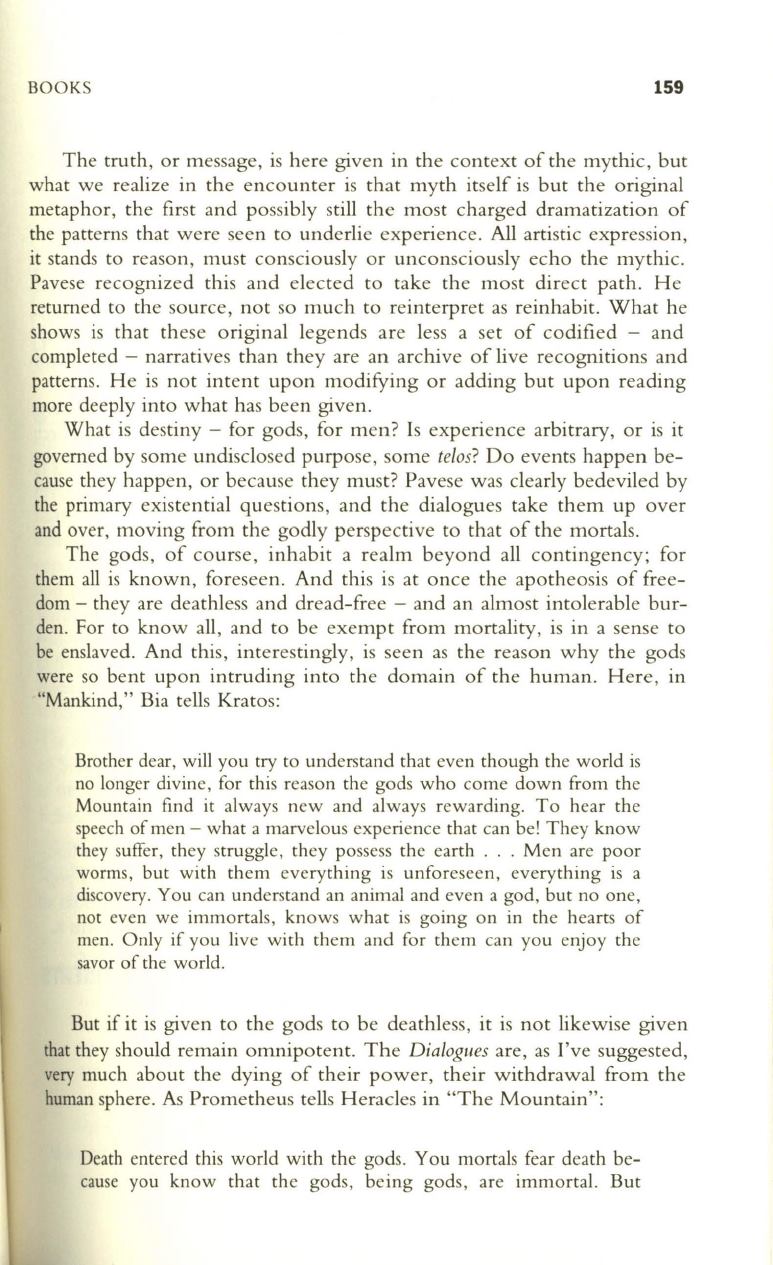
BOOKS
159
The truth, or message, is here given in the context of the mythic, but
what we realize in the encounter is that myth itself is but the original
metaphor, the first and possibly still the most charged dramatization of
the patterns that were seen to underlie experience. All artistic expression,
it stands to reason , must consciously or unconsciously echo the mythic.
Pavese recognized this and elected to take the most direct path. He
returned to the source, not so much to reinterpret as reinhabit. What he
shows is that these original legends are less a set of codified - and
completed - narratives than they are an archive of live recognitions and
patterns . He is not intent upon modifying or adding but upon reading
more deeply into what has been given.
What is destiny - for gods, for men? Is experience arbitrary, or is it
governed by some undisclosed purpose, some
telos?
Do events happen be–
cause they happen, or because they must? Pavese was clearly bedeviled by
the primary existential questions, and the dialogues take them up over
and over, moving from the godly perspective to that of the mortals.
The gods, of course, inhabit a realm beyond all contingency; for
them all is known, foreseen. And this is at once the apotheosis of free–
dom - they are deathless and dread-free - and an almost intolerable bur–
den. For
to
know all, and to be exempt from mortality, is in a sense to
be enslaved. And this, interestingly, is seen as the reason why the gods
were so bent upon intruding into the domain of the human. Here, in
"Mankind," Bia tells Kratos:
Brother dear, will you try to understand that even though the world is
no longer divine, for this reason the gods who come down from the
Mountain find it always new and always rewarding. To hear the
speech of men - what a marvelous experience that can be! They know
they suffer, they struggle, they possess the earth ... Men are poor
worms, but with them everything is unforeseen, everything is a
discovery. You can understand an animal and even a god, but no one,
not even we immortals, knows what is going on in the hearts of
men. Only if you live with them and for them can you enjoy the
savor of the world.
But if it is given to the gods to be deathless, it is not likewise given
that they should remain omnipotent. The
Dialogues
are, as I've suggested,
very much about the dying of their power, their withdrawal from the
human sphere. As Prometheus tells Heracles in "The Mountain":
Death entered this world with the gods. You mortals fear death be–
cause you know that the gods, being gods, are immortal. But


